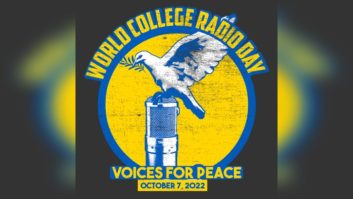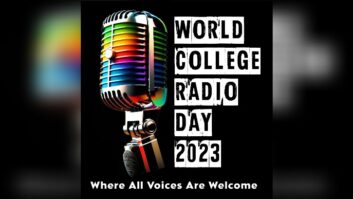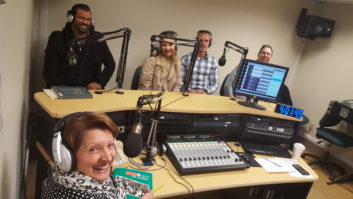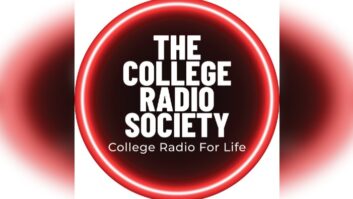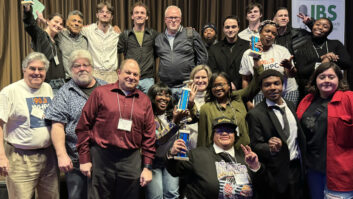
The author is membership program director of the National Federation of Community Broadcasters. NFCB commentaries are featured regularly at radioworld.com.
Community radio advocates were upset when the University of Massachusetts at Dartmouth announced plans to sell its WUMD(FM) signal space to Rhode Island Public Radio. This was not new as several college stations over the last few years have been sold. Those passionate about community radio often ask how they can fight back against these trends.
The National Federation of Community Broadcasters follows trends affecting community media outlets whose programming is mostly created by volunteers. Because of this, NFCB is keenly interested in what happened with WUMD. Their fate is worrisome. Killing off a community-based signal (ostensibly to make a digital channel), is no guarantee that accessibility for the student body or community will remain intact.
The loss of opportunities for young people and the community at large to be a part of media, gain experience and contribute to democracy is a tragedy. How do you save your college radio station from being sold? My assessment to those in college radio and elsewhere is pretty straightforward: don’t look at this issue through your own lens. Put yourself in the university’s position and look at their considerations. Engage those topics now lest you pay for it later.
Universities sell station licenses for a range of reasons, but the most evident one is that the colleges no longer think the station’s value to a campus justifies its cost to the institution. I’ve heard more than my share of intricate explanations from station insiders in various places about how stations are independent, even separate nonprofits, and who controls what (e.g. “student run”). My direct questions are always: Whose name is on the license? Does funding come from the university? If so, what percentage? How do you tangibly demonstrate your independence? If the answer boils down to a university controlling the license, purse strings, staff/advisor salaries, etc., you’re not independent and you have a licensee you’ll want to keep engaged with the station.
Many stations regard a university licensee’s disengagement as good. No university involvement in the station means less micromanagement, more freedom and so on. The problem with this attitude is that the more distant a university is to a station it owns, the less they are involved and the less important your station seems. When your station is an afterthought, or not relevant and accessible the university community, it is easier to decide to sell it. Why? Because the university perceives the disconnected station as something the student body doesn’t care about so why should they?
At the end of the day, the university rightfully expects the station to serve the campus that pays its bills. I recognize that may sound harsh, but in the competitive world of higher education, where the money goes, which official is accountable, and what the university gets back matters tremendously. In the Rhode Island Public Radio case, UM-Dartmouth evidently reasoned that the two million-odd dollars the school got in cash and in-kind was worth more than the station signal.
Thus, saving your college radio also means looking at outreach, inclusion and engagement. How is the station embedded in student life? Do students on campus know about the radio station? Is it an open environment where students have access? How does it promote diversity and other university initiatives in its hires, news and programming? Does the university come to the station to promote its news, events and projects? How is the station promoted on campus? When was the last time a university president or administrator was invited for a visit, tour or to host a program talking to students and staff? How are other university departments or student groups involved in the station, or do they know about the station at all? If the university is the licensee and the station paid for through student fees or other methods, a critical strategy for the station to execute is to have the campus on its side, and to make sure that university administrators see the positive impact the station has on the lives of the students. When your station is seen as a key player in furthering a university’s mission and is a place many students are involved, it becomes a more important asset to decisionmakers. When a station is seen as integral, it’s harder to let it go or undermine it.
Once a college radio station gets to a sale announcement, the chances of stopping it are extremely unlikely. Legal precedents and past decisions are on the side of the buyer. There are a few approaches to mitigating that.
You can try complaining to the Federal Communications Commission about a sale. However, bear in mind the FCC is extremely unlikely to block a sale based on what kind of programming your station does. Remember, the FCC oversees commercial and noncommercial broadcasting issues, and a freeform music station is, in the matrix of FCC considerations, a music station. Replacing it with news, Christian music or some other format prompts no particular legal trigger that is likely to halt a sale. Your loss of 45-minute Miles Davis live tracks may be felt, but on the crowded FCC agenda, won’t be enough.
You may also want to look at what the university is reportedly getting back for the signal and raise questions about the valuation process and its integrity. Interestingly, Rhode Island Public Radio’s offer to help move WUMD to digital and provide internships and other services is nearly identical to what KUHF offered Rice University when it sold KTRU’s signal space to KUHF. KUHF turned around and sold it to Christian broadcaster a few years later. Such issues may not stop a sale, but they press sellers if they’re not getting full value or a license.
Stopping the sale of a university license means that the community’s radio supporters have to be involved with the licensee and the station has to be highly valued by the school itself. Every lost station is a chance for those who care about community radio to push not only for accountability from buyers and sellers, but also us.





